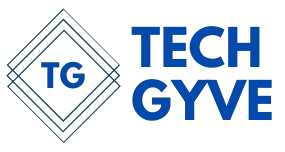In a bold prediction at the World Government Summit in spring 2024, Nvidia CEO Jensen Huang claimed that the profession of programming could soon become a relic of the past. Just months earlier, GitHub CEO Nat Friedman had also stirred the pot by forecasting that AI tools like GitHub Copilot might soon handle up to 80% of coding tasks.
Is the era of human programmers coming to an end?
Adding fuel to the fire, Amazon’s cloud chief Matt Garman recently echoed these sentiments, suggesting that many developers might soon find themselves needing to pivot away from traditional coding roles. The catalyst for this potential upheaval? The unstoppable rise of artificial intelligence.

But a closer examination of these statements reveals a more nuanced picture. Industry experts are not predicting a wholesale elimination of programming jobs; rather, they foresee AI taking over routine, repetitive tasks. For instance, Devin, touted earlier this year as the first fully automated AI software developer, represents a step towards this future.
While AI has yet to reach a point where it can code entirely independently and flawlessly, the technology is progressing rapidly. Even if AI achieves this level of proficiency, the landscape of programming will evolve rather than vanish.
Shifting Responsibilities
According to Madars Biss, a tech writer and frontend developer, the role of programmers will shift significantly in the coming years. Instead of creating code from scratch, developers will increasingly focus on supervising AI-generated code. “Routine tasks will be automated, allowing developers to concentrate on administration, validation, and creative problem-solving,” Biss told Business Insider.
Despite AI’s growing role, human oversight remains crucial. Programmers will be tasked with ensuring that AI-generated code meets established quality and safety standards. Additionally, AI is expected to enhance its capabilities in detecting security vulnerabilities and possibly take on parts of the quality assurance process.
Quality Assurance: A Stable Ground
Jyoti Bansal, co-founder and CEO of Harness, advises programmers to focus on areas where AI is still developing its expertise. Fields like quality assurance, development, and operations are likely to remain robust domains for human expertise, offering a safe haven for those concerned about job security.
Software engineer Michael Solati has already integrated AI into his workflow, particularly when tackling unfamiliar programming languages. He notes that while programming will become faster with AI assistance, the overall complexity of the job may increase.
As Solati puts it, “Programming will be quicker, but the challenges will be more demanding.” In this evolving landscape, the role of programmers may not vanish but transform, requiring a blend of technical skill and oversight to navigate the AI-augmented future.
